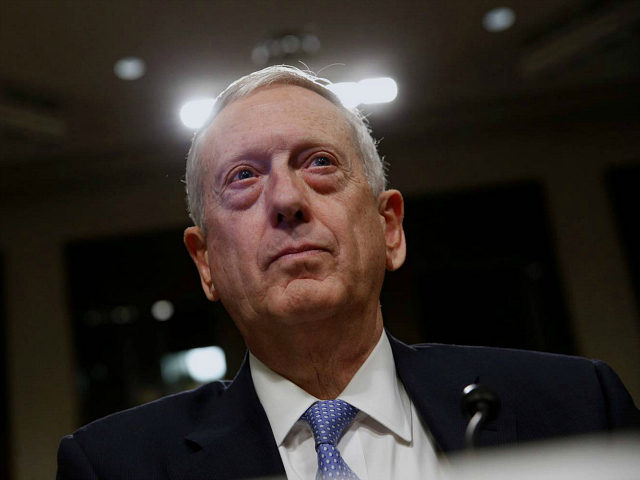Defense Secretary James Mattis on Monday had harsh words for Iran at the Association of the United States Army conference, ahead of a key Trump administration announcement on the Iran nuclear deal.
Without explicitly naming the country, he called Iran a “state sponsor of terror” in the Middle East that is masquerading as a nation state.
“One state sponsor of terror in the Mideast cannot hide behind its nation-state status while, in effect, it is actually a destabilizing revolutionary regime,” he said.
Iran is a U.S.-designated state sponsor of terrorism along with two other countries: Sudan and Syria. While dictator Bashar al-Assad is aligned with the Iranian regime, the Syrian civil war has significantly limited Assad’s ability to sponsor international terrorism, while Iran has expansive and influential operations throughout the world.
Mattis has made variations of that characterization of Iran over the past years, but this latest comment comes just days before the Trump administration is set to announce a decision on whether to certify or decertify that Iran is in compliance with the deal.
President Trump has indicated in the weeks leading up to the October 15 deadline that he will not certify Iran’s compliance, but officials have not yet made an announcement yet.
Officials say there is a fierce debate within the White House over whether to do so. Mattis said last week during testimony on Capitol Hill that he favors staying within the deal.
Secretary of State Rex Tillerson has also indicated he favors staying within the deal.
If Trump decides to decertify the agreement, Congress then has to decide whether to reimpose sanctions on Iran, which could end the deal – at least for the U.S. but not its other members — or to do nothing, which would leave the deal intact.
Last week, the Washington Free Beacon reported that Trump is expected not to certify Iran’s compliance, due to Iran’s continued testing of ballistic missile technology, which was not addressed by the deal, and its rogue operations targeting U.S. forces in the region.
A major deciding factor, it reported, was the recent admission by the International Atomic Energy Agency that it could not fully assess whether Iran is working on sensitive nuclear explosive technology due to restrictions on inspections.
Trump has backers on Capitol Hill: Both Sens. Ted Cruz (R-TX) and Tom Cotton (R-AR) oppose certifying the deal, which could lead to a reimposition of sanctions and renegotiation of the deal.

COMMENTS
Please let us know if you're having issues with commenting.